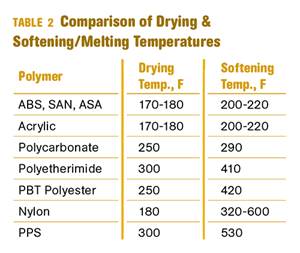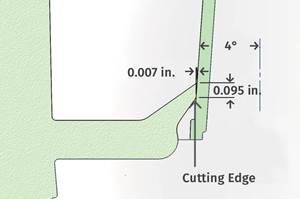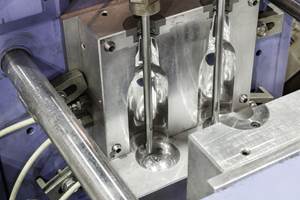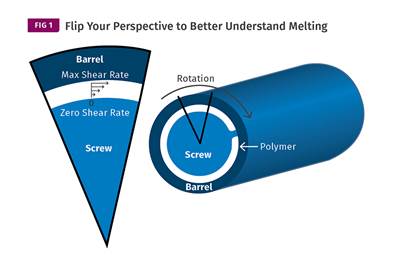MES Helps Molder Tackle Plant Efficiency
New central computer system dramatically improved operating efficiencies and slashed costs for a molder of tackle boxes and other types of cases.
There’s an 80% shot that if you’re a fisherman and own a tackle box, it was made by Plano Molding. Running 41 production lines at plants in Mendota and Sandwich, Ill., for more than 60 years, the company has been making fishing-tackle boxes, tool boxes, and carrying cases for a number of outdoor activities, and selling its products under the Plano, Frabill, Tenzing, Caboodles, and Creative Options brand names.
A few years ago, a plan to replace the traditional paper-and-pencil approach to collecting performance data on the shop floor led Plano to consider a new manufacturing execution system (MES) to automate and optimize production processes and performance. The molder opted for a Mattec MES from Epicor, Austin, Tex., and the end results have been dramatic improvements in efficiencies and a huge savings as a result of cutting scrap. The system offers Plano capabilities for production scheduling, monitoring machine operation and maintenance, quality management, and real-time analysis of machine-related data such as overall equipment effectiveness (OEE), run rates, scrap, yield, and more.
Mattec MES captures data directly from machines and operators, and delivers real-time production metrics and operations analytics in an easy-to-digest, visual manner.
With MES, Plano can look at critical efficiency measurements, such as OEE and scrap rates—by shift, day, week, or month. Real-time production and process monitoring helps Plano eliminate inefficiencies, like reducing scrap and unplanned downtime while also improving cycle efficiencies, so the molder can work more profitably.
“Mattec played a significant role in achieving over $700,000 worth of scrap savings year-to-date, year-over-year,” says Tom Dimick, dir. of manufacturing operations at Plano. Concerning scrap, it was important for Plano to establish “molded costs” (vs. fixed costs) so it could evaluate scrap cost savings separately for high-value and low-value products. Notes Dimick, “We manufacturer a variety of products that are made up of parts which vary in value. We’ve been able to take the focus off looking at the percentage of scrap improvements and more towards evaluating the part’s dollar value. Mattec allows us to track this information.”
By looking at scrap charts, Plano can spot which machines are having issues with the molds, while scrap tables show which part number has the highest scrap cost. “This information allows our team to focus on the highest-value areas and products that we need to get under control,” notes Dimick. Focusing on an overall percentage doesn’t mean the highest dollar value.”
Machine availability and uptime have improved drastically as well. “Mattec allows us to dive into which machines and molds are having problems, giving us real-time feedback on what’s happening in our plants,” adds Dimick.
With the Mattec MES, Plano has become more proactive in anticipating and solving production problems before they occur. Examples of this are the real-time displays of the Top Five OEE Machines, Bottom Five OEE Machines, Top Five Cycle-Efficient Machines, Top Five Scrap Reasons, and more that are visible on the plant floors. This information has a huge impact on scheduling and allows Plano to quickly determine which machines can run a particular job; which machine is most efficient for the job; and, with real-time tracking, the reasons for job delays. “Our team uses the Mattec system more than any other system we have in the company,” says Dimick. “The shop-floor insights that Mattec provides helps our team drive bottom-line growth.”
Better planning and scheduling have also enabled Plano to improve its responsiveness to customers and customer satisfaction. “Real-time planning and scheduling insights with Mattec allow us to respond to our customers faster,” adds Dimick. “This is especially critical for rush orders, so when the scheduling department gets an urgent order they can instantly communicate with plant-floor managers and receive optimal plans based on machine efficiencies, production-line availability, materials forecasting, and other critical factors to schedule the job.”
Related Content
Why (and What) You Need to Dry
Other than polyolefins, almost every other polymer exhibits some level of polarity and therefore can absorb a certain amount of moisture from the atmosphere. Here’s a look at some of these materials, and what needs to be done to dry them.
Read MoreTunnel Gates for Mold Designers, Part 1
Of all the gate types, tunnel gates are the most misunderstood. Here’s what you need to know to choose the best design for your application.
Read MoreThe Importance of Melt & Mold Temperature
Molders should realize how significantly process conditions can influence the final properties of the part.
Read MoreSolve Four Common Problems in PET Stretch-Blow Molding
Here’s a quick guide to fixing four nettlesome problems in processing PET bottles.
Read MoreRead Next
Understanding Melting in Single-Screw Extruders
You can better visualize the melting process by “flipping” the observation point so that the barrel appears to be turning clockwise around a stationary screw.
Read MoreHow Polymer Melts in Single-Screw Extruders
Understanding how polymer melts in a single-screw extruder could help you optimize your screw design to eliminate defect-causing solid polymer fragments.
Read MoreAdvanced Recycling: Beyond Pyrolysis
Consumer-product brand owners increasingly see advanced chemical recycling as a necessary complement to mechanical recycling if they are to meet ambitious goals for a circular economy in the next decade. Dozens of technology providers are developing new technologies to overcome the limitations of existing pyrolysis methods and to commercialize various alternative approaches to chemical recycling of plastics.
Read More











.png;maxWidth=300;quality=90)














